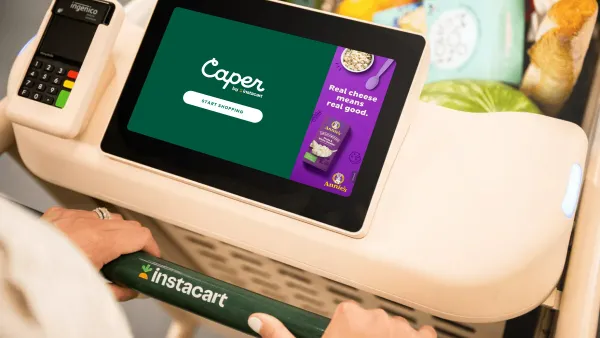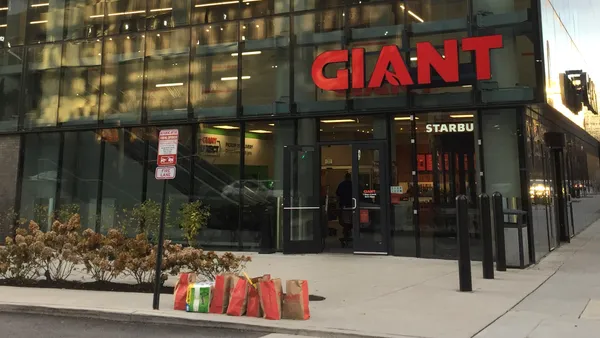Dive Brief:
- Paper receipts could be the next target of environmentalists, as the California State Assembly proposed a bill this week that would ban them unless a customer asks. Inspired by Green America’s “Skip the Slip” campaign, the bill would force businesses to send electronic receipts by January 1, 2022 and would not exempt small businesses, the Sacramento Bee reported.
- Similar to its plastic straw and other product bans, the state would warn noncompliant businesses twice before fining them $25 for each subsequent violation, up to $300 per year. A Republican assemblyman worried about the effect on small and rural businesses and whether it would save that much paper, according to the New York Times.
- In addition to not being recyclable, receipt paper typically uses BPA or BPS, chemicals that allow ink-free printing, CNBC reported. A spokesperson for the California Retail Association told CNBC that many stores already offer e-receipts, but smaller and medium-sized stores could face issues putting the bill into action.
Dive Insight:
Proponents of this legislation agree that many retailers have taken steps to curb their environmental impact by offering digital receipts, but dangling fines could encourage stragglers to speed up the transition. Assemblymen Phil Ting, a San Francisco Democrat, told the Sacramento Bee that many small businesses have gone digital. “It’s really many of these larger, older, legacy systems that haven’t caught up to today’s times,” he said.
That might be true for small businesses in other retail sectors such as clothing boutiques or coffee shops, where owners have turned to digitally native companies for inventory and cash register management. But traditional grocers and convenience store chains carry many more items than other retailers and often have the same systems chain-wide, making the switch an expensive and tedious task. Fast-casual restaurants, where ticket averages are typically lower, can more readily adopt the technology. Square, for instance, has always offered quick and easy email receipts, remembering the customer’s email once attached to a credit card at point-of-purchase.
In addition to large retailers, consumers also might hesitate to accept digital receipts for privacy reasons, or simply because they don't want their inbox flooded with emails. The switch could also prove untenable for older consumers or others who lack access to or don’t frequently use email. About 11% of Americans don’t use the internet, according to Pew Research Center, and rural Americans are more than twice as likely as city and suburban residents to never go online. The adoption rate for smartphones, however, has surpassed 75%.
Green America, an advocacy group pushing retailers to “skip the slip,” acknowledges these potential setbacks. For those customers, it recommends that retailers embrace chemical-free paper, as Lidl has done on the East Coast. Whole Foods still uses paper with BPA and BPS in it, per Green America’s list, but also offers digital receipts. Target, Walmart, Walgreens and CVS haven’t made the switch to clean paper either.
Renowned for its feet-long receipts packed with coupons, CVS started offering paperless receipts in 2016, but customers must have an ExtraCare card to receive them. Green America contends that the company hasn’t done enough to promote the service, used by 4.5 million, or about 7%, of its ExtraCare members, CVS cited in its 2017 company report. Through this initiative, the company saved $200,000, the report noted.
Receipts generate 686 million pounds of waste and 12 billion pounds of carbon dioxide every year, according to Green America. Perhaps the first step should be convincing major retailers to convert to chemical-free paper. But even more appealing to businesses could be the cost savings: Receipt paper costs about 40 cents for a 150-foot roll and $3 per ribbon, according to Digital Check. Considering how often these items need to be replaced, the costs can really add up.
Correction: A previous version of this story incorrectly stated the materials in Trader Joe's receipts due to an error in the original report. The story has been updated to reflect that Trader Joe's removed phenols from its receipt paper in 2017.










